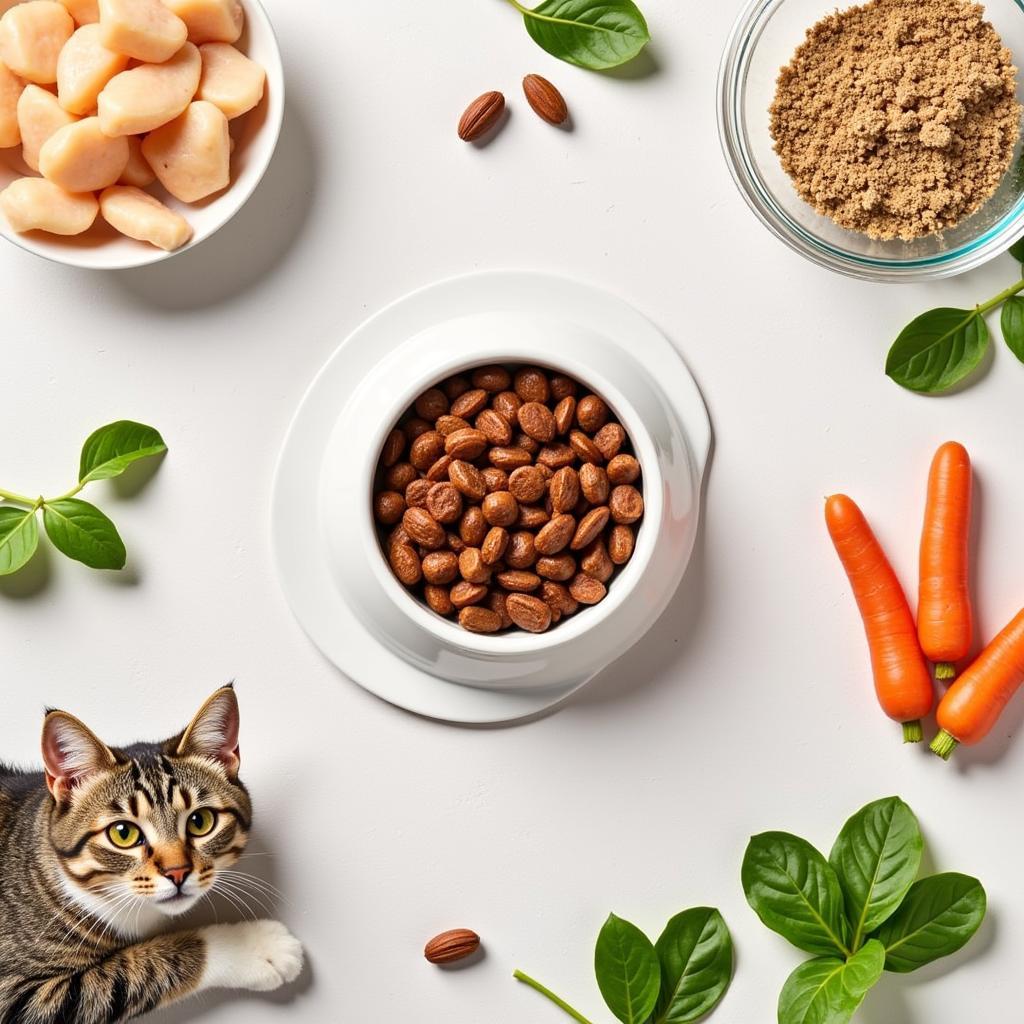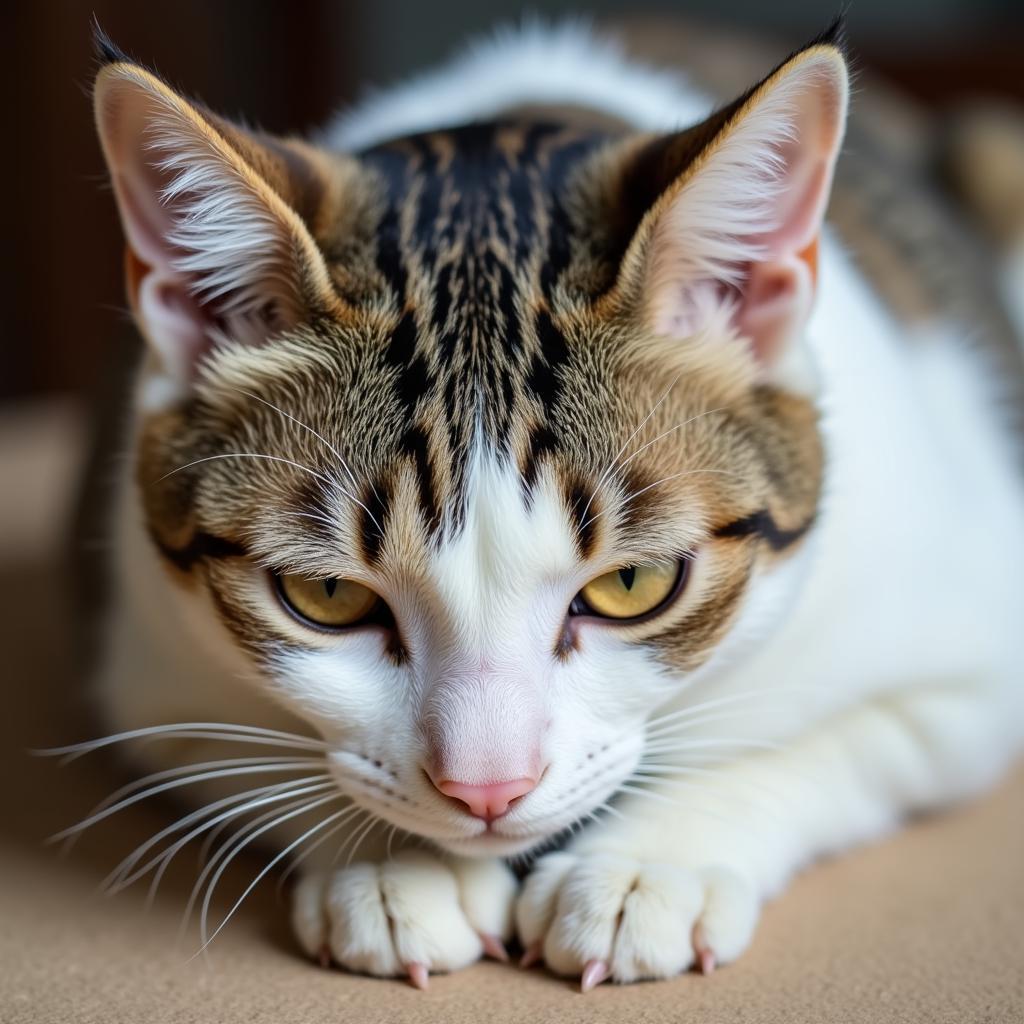Choosing the right cat food for liver support can be a daunting task, especially with so many options available. This guide will help you understand the importance of proper nutrition for feline liver health, the key ingredients to look for, and how to choose the best cat food for liver support. We’ll also address common questions and concerns, empowering you to make informed decisions for your furry friend. Read on to discover how the right diet can make a significant difference in your cat’s liver health and overall well-being. Let’s explore the world of Cat Food Liver Support together!
Understanding Feline Liver Disease and the Role of Nutrition
The liver is a vital organ responsible for numerous functions, including filtering toxins, producing bile, and metabolizing nutrients. When the liver is compromised, it can’t perform these functions effectively, leading to various health problems. Nutritional management plays a crucial role in supporting liver function and minimizing further damage. A specialized diet can help reduce the workload on the liver, provide essential nutrients, and manage complications associated with liver disease. Check out our recommendations for cat food for liver support.
A proper diet for a cat with liver issues often involves restricting certain nutrients, such as copper and sodium, while increasing others, like protein and antioxidants. These dietary adjustments can help alleviate the strain on the liver and promote healing.
 A Balanced Diet for Cat Liver Support
A Balanced Diet for Cat Liver Support
Key Ingredients to Look for in Cat Food for Liver Support
Choosing cat food with the right ingredients is essential for supporting liver health. Look for food with high-quality protein sources, moderate levels of fat, and reduced levels of copper and sodium. Essential ingredients include:
- High-quality protein: Easily digestible protein sources, such as chicken, turkey, or fish, are crucial for maintaining muscle mass and supporting liver function.
- Restricted copper: Copper accumulation can exacerbate liver disease. Look for foods with low copper content.
- Reduced sodium: Sodium can contribute to fluid retention, which can be problematic for cats with liver issues.
- Antioxidants: Antioxidants, such as vitamins E and C, can help protect liver cells from damage.
- Digestible carbohydrates: Moderate amounts of easily digestible carbohydrates provide energy without overworking the liver.
- Essential fatty acids: Omega-3 fatty acids can help reduce inflammation and support overall health.
Understanding the role of these ingredients empowers you to make the best choice for your cat’s specific needs. Remember to consult your veterinarian for personalized recommendations.
How to Choose the Best Cat Food for Liver Support
Selecting the best cat food for liver support requires careful consideration of your cat’s individual needs and preferences. Consulting with your veterinarian is crucial. They can diagnose the specific type of liver disease and recommend appropriate dietary adjustments. Here are some things to consider when choosing cat food for your furry companion with compromised liver function:
- Veterinary recommendations: Your vet can provide tailored guidance based on your cat’s specific condition.
- Prescription diets: In some cases, a prescription diet may be necessary to manage specific liver conditions.
- Palatability: Ensure the food is appealing to your cat to encourage consumption.
- Life stage: Consider your cat’s age and life stage when choosing food.
- Ingredients: Carefully examine the ingredient list to ensure it meets the criteria mentioned earlier.
You might be surprised to find out more about food containers styrofoam while researching cat food.
What are the Signs of Liver Problems in Cats?
Recognizing the signs of liver problems in cats is vital for early diagnosis and treatment. These signs can be subtle, so it’s essential to be vigilant. Some common symptoms include:
- Jaundice (yellowing of the skin, gums, and eyes)
- Increased thirst and urination
- Vomiting and diarrhea
- Weight loss
- Lethargy
- Loss of appetite
If you notice any of these symptoms, consult your veterinarian immediately. Early intervention is key to managing liver disease and improving your cat’s quality of life.
 Cat Showing Liver Problem Symptoms
Cat Showing Liver Problem Symptoms
Conclusion
Choosing the right cat food for liver support is a critical step in managing feline liver disease. By understanding the importance of nutrition, recognizing key ingredients, and working closely with your veterinarian, you can provide your cat with the best possible care and support their liver health. Remember that a well-balanced diet, specifically formulated for liver support, can significantly improve your cat’s quality of life and overall well-being. If you need support, please contact our team for assistance. We have resources about food pantry hendricks county indiana and other topics as well. Finding the right cat food liver support is a journey, and we are here to help you every step of the way.
FAQs
-
What is the best protein source for cats with liver disease? Highly digestible proteins like chicken, turkey, and fish are generally recommended.
-
Should cats with liver problems eat a low-fat diet? Not necessarily. Moderate levels of fat are important for energy and nutrient absorption.
-
Can I give my cat supplements for liver support? Always consult with your veterinarian before giving your cat any supplements.
-
How often should I feed my cat with liver disease? Follow your veterinarian’s recommendations for feeding frequency and portion sizes.
-
Is it okay to give my cat treats if they have liver problems? Choose treats specifically formulated for liver support or consult your vet for recommendations.
-
How can I encourage my cat to eat if they have a poor appetite? Try warming the food, offering small, frequent meals, or using food toppers recommended by your vet.
-
Are there any home remedies for cat liver support? Consult your veterinarian before trying any home remedies, as some can be harmful.
Common Scenarios
- Scenario 1: Your cat has been diagnosed with early-stage liver disease. Your vet recommends a specific diet with reduced copper and sodium.
- Scenario 2: Your cat is experiencing loss of appetite due to liver issues. Your vet suggests trying different food textures or adding flavor enhancers.
- Scenario 3: Your cat requires a prescription diet for advanced liver disease. Your vet helps you choose the most suitable option.
Further Reading
For more information on cat food and nutrition, check out these resources: burlington nc food hall and chinese food carle place ny.
When you need support, contact us at Phone Number: 02437655121, Email: minacones@gmail.com Or visit us at: 3PGH+8R9, ĐT70A, thôn Trung, Bắc Từ Liêm, Hà Nội, Việt Nam. We have a 24/7 customer support team.